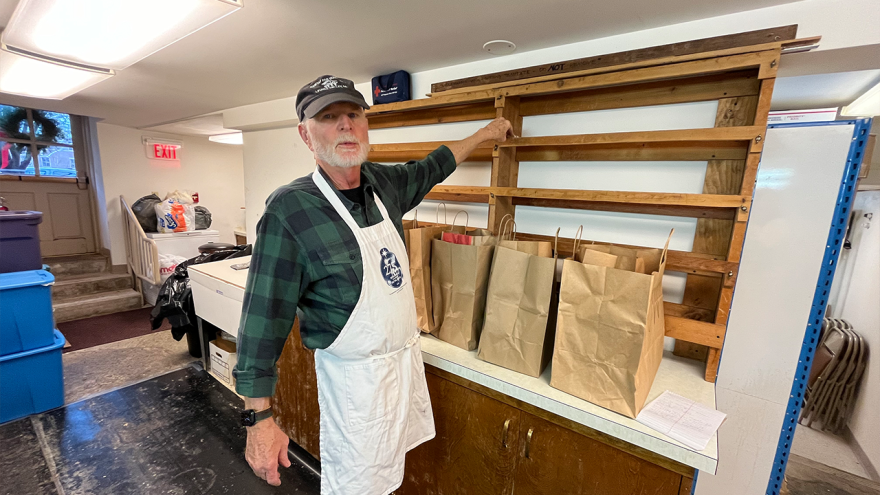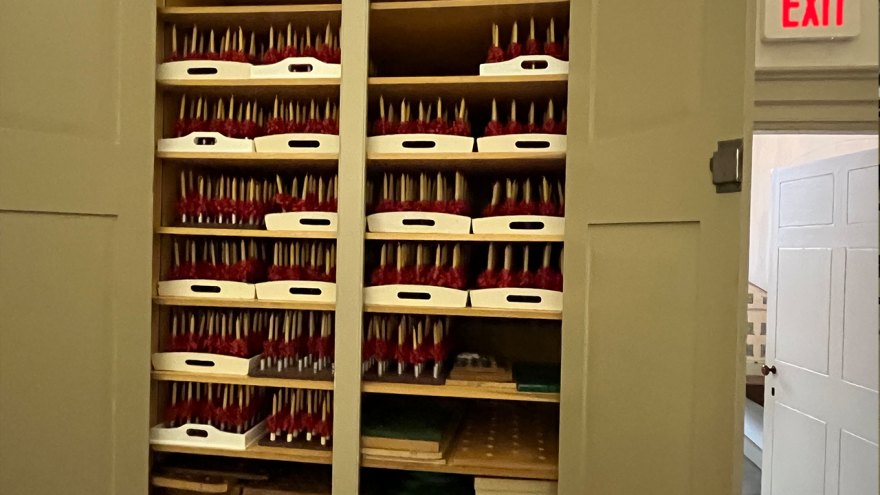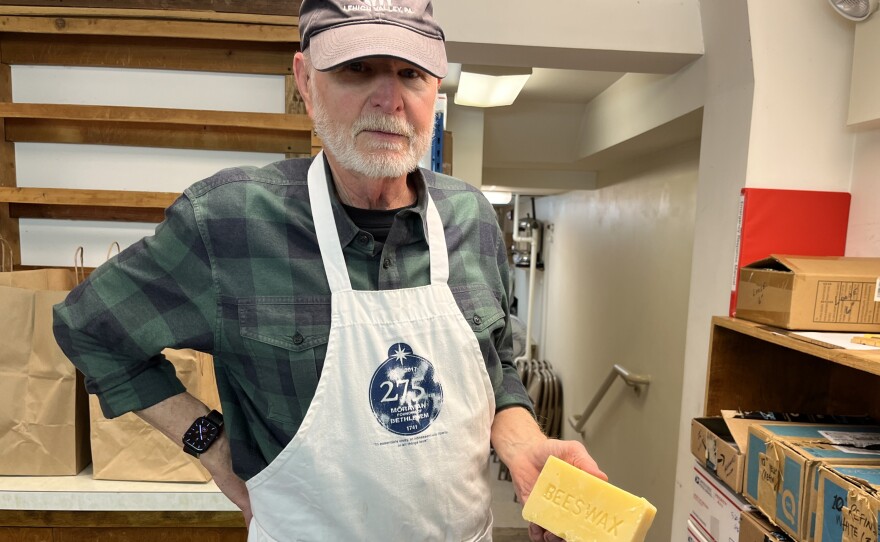BETHLEHEM, Pa. — It takes a village to raise a child. It takes two to tango.
It takes 533 pounds of beeswax, 1.5 miles of wick, 160 cups of coffee and 12 dozen donuts to make one season's worth of 6-inch Moravian beeswax candles.
Volunteers gather in the basement of Central Moravian Church's business office every Tuesday each September to make the magic happen. Think of the donuts and coffee as the fairy dust that fuels the well-oiled machine.
The tradition is a true labor of love carried out each year with the care and devotion that floats the spirit of Christmas across candlelight services throughout the Lehigh Valley.
The history of the Moravian beeswax candle
The tradition began in 1747 near the castle of Marienborn in Wetteravia, Germany.
According to the Moravian Church in America website, the area was experiencing political strife and upheaval. In addition to being among the shortest days of the year, it was a dark time in every sense of the word.
"...On Christmas Eve 1747, Bishop John de Watteville conducted vigil services, using as a theme the happy anticipation of the Christ-child’s arrival. This was not a common idea then," it said.
The bishop gave each child a beeswax candle with red ribbon around the bottom.
Beeswax, they said, is one of the purest types of wax and represents the purity of Christ and the red ribbon symbolizes the blood of Christ.
The little flame resembles the sacrifices of Christ, giving its life as it burned.
The first candlelight service in Wetteravia was so memorable that the next year the fledgling tradition spread to other places in Europe.
By 1756, the first service in the New World was held in Bethlehem, according to the city's diary.
The candle-making process
The magic starts with a 1-pound brick of yellow beeswax.
Beeswax also comes in a whitish color, according to Harry Tachovsky of Bethlehem, who this year oversaw the candle-making process at Central Moravian Church. He's been making candles there for 15 years.
The color of the wax depends on what the bees eat, he said. The white wax is more rare and more expensive.
Central Moravian Church buys the bricks and the wicks from several companies around the country.
A brick is melted in a double boiler on the stove then poured into a pitcher, and from there, into the molds.
The molds for the 6-inch candles are made of aluminum. Each mold makes 12 candles.
Picture a small room with a table in the center and volunteers side-by-side around it. Some are pouring hot wax from pitchers into molds. Others are waxing wicks.
After the wax hardens a bit and candles are taken out of the molds, they're hung on a rack that lines a wall across the room from the stove.

Still other volunteers clean the molds and the bars that hold the wicks in place in the mold while the wax is hardening.
Each step of the process is part of the dance that makes the huge project possible in two small, adjoining rooms. Even the small hallway that joins the rooms is used to hang the clean wick holders on their way to being strung.
Twelve at a time, for hours every Tuesday in September, yields up to 16,000 candles, Tachovsky said.
The red "ribbons" that adorn each candle are made of flame retardant tissue paper. "But they're not flame proof."Harry Tachovsky, Central Moravian Church candle maker
In turn, every Tuesday in October, more volunteers gather to adorn the candles with red "ribbons," which are actually pieces of machine-fringed, flame-retardant red tissue paper.
"But they're not flame proof," Tachovsky said.
In addition to Christmas Eve candlelight services, he said, Moravian University greets each new freshman class with a service featuring the small candles. And the Greater Lehigh Valley Chamber of Commerce featured them at its recent annual Advent breakfast.
Ten- and 12-inch tapers are also made to order, he said, and are mostly used for weddings and special occasions, as well as services, he added.

Slowly but steadily, the floor-to ceiling cupboard in the church's kleiner saal meeting room fills with trays of candles.
Along about December, the candles are shipped to churches near and far to light the faces and comfort the hearts of the faithful who still gather to help each other work through the dark days.


















